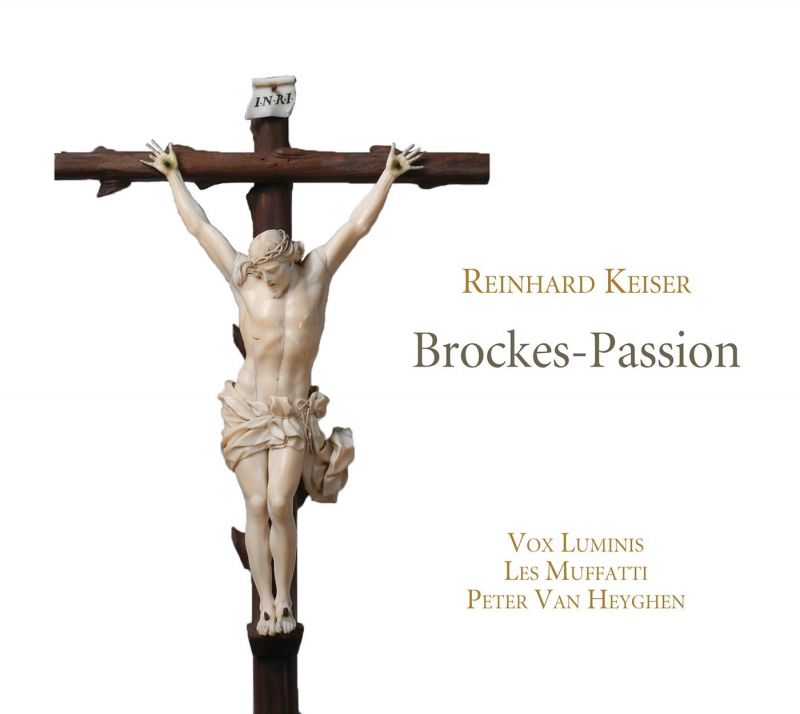KEISER Brockes-Passion
View record and artist detailsRecord and Artist Details
Composer or Director: Reinhard Keiser
Genre:
Vocal
Label: Ramee
Magazine Review Date: 08/2014
Media Format: CD or Download
Media Runtime: 121
Mastering:
DDD
Catalogue Number: RAM1303

Tracks:
| Composition | Artist Credit |
|---|---|
| Brockes-Passion |
Reinhard Keiser, Composer
(Les) Muffatti Jan van Elsacker, Tenor Peter Kooij, Bass Peter van Heyghen, Conductor Reinhard Keiser, Composer Vox Luminis Zsuzsi Tóth, Soprano |
Author: David Vickers
Peter Kooij is surprisingly bold in his delivery of some of Jesus’s vivid accompanied recitatives but there are plenty of moments that display his customarily compassionate singing, such as the soliloquy ‘Mein Vater, schau wie ich mich quäle’. Hugo Oliveira’s indignant condemnation of Caiaphas and his corrupt council is highly effective, and Fernando Guimarães sings Peter’s bitter self-reproach after his denial of Christ with the sort of potent yet dry timbre that reminded me of Peter Schreier. The Daughter of Zion has plenty to say in a host of short contemplative arias but Zsuzsi Tóth produces routinely lovely singing, whether in lively arias or gentler music that sways with melodious charm, such as ‘Heil der Welt, dein schmertzlich Leiden’, in which the magical effect of pizzicato strings and concertante flute and violin would not be out of place in one of Bach’s Weimar cantatas. Handel’s lessons learnt from Keiser at the Hamburg opera house are manifest in the richly pictorial woodwind in dialogue with Caroline Weynants’s rapturous singing in the Believing Soul’s ‘Dem Himmel gleicht sein buntgestriemter Rücken’, whereas the choral enquiries ‘Wohin?’ during ‘Eilt ihr angefochtnen Seelen’ were clearly a model for the comparable moment in Bach’s St John Passion a dozen years later.
Discover the world's largest classical music catalogue with Presto Music.

Gramophone Digital Club
- Digital Edition
- Digital Archive
- Reviews Database
- Full website access
From £8.75 / month
Subscribe
Gramophone Full Club
- Print Edition
- Digital Edition
- Digital Archive
- Reviews Database
- Full website access
From £11.00 / month
Subscribe
If you are a library, university or other organisation that would be interested in an institutional subscription to Gramophone please click here for further information.




